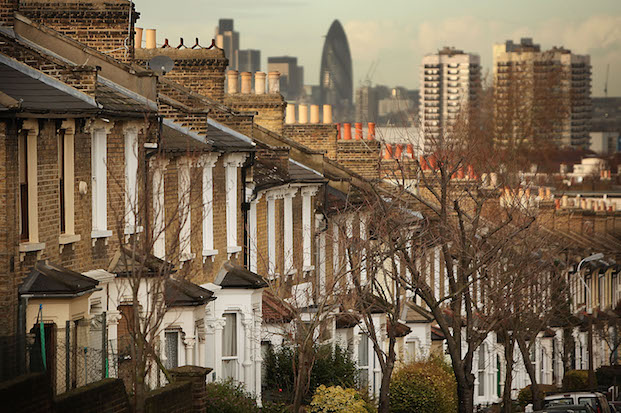Economists have for some time spoken of a ‘great inversion’ of London, whereby property price hikes in inner London, often linked to gentrification, has made suburbia comparatively more affordable. These changes, marked in the five years since David Cameron became Prime Minister, could have a profound effect on how the general election result pans out in the city. This is especially the case given the ability of such changes to affect the social and demographic makeup of London, as people from poorer backgrounds, the young and ethnic minorities are more likely to be susceptible to price increases in the private rental market.
In some ways, this is nothing new, with John O’Farrell lamenting the loss of Labour Battersea in 1987, for the first time since the Great Depression, putting it down to the growth of ‘yuppie’ flats.
Broadly speaking, most of the property price increases since the last election are in seats that strongly favour the Conservatives already (Cities of London & Westminster, Chelsea & Fulham, and Kensington) or are so safe for Labour that an influx of more Conservative-leaning voters would take generations before it had a profound enough impact. Furthermore, in many of those seats, such as Lewisham Deptford, the two Hackneys or the two Islingtons, wealthier and less diverse voters are as likely to be champagne socialists as Conservatives, perhaps more likely to vote Green than for Mr Cameron.
Three seats stand out as notable exceptions, however, with Battersea, Ealing Central & Acton (both seeing large new infrastructure projects in the form of the Power Station and Crossrail) and Westminster North as key marginals which have become significantly less affordable since 2010. To a lesser extent, Tooting can also be seen as part of this list. A problem for the Conservatives in some of these seats, especially Ealing Central & Acton, Brentford & Isleworth and Hampstead & Kilburn, is that the collapse of the Liberal Democrat vote, often left-leaning in inner suburban London, is likely to pad out Labour’s column in seats are moving, at very different speeds, to the right.
So if some people are no longer able to afford inner London rents, where are they going? Of the twenty London seats with the lowest house price increases since 2010, all are in suburbia, with most touching the border of Greater London. Most notable amongst these are the Labour targets of Enfield North, Hendon (rising by 10pts less than the average) and Ilford North (9pts less) – as well as the Conservative target of Harrow West (8pts less).
The ability of such changes to alter the demographic makeup of such seats is stark. For instance, when Labour won Ilford North in 2001 (for only the fourth time since its creation in 1945), its ethnic minority population was just 30 per cent – ten years later, this figure stood at 51 per cent, making it more diverse than Camberwell & Peckham or Tottenham. Enfield North (+17pts), Harrow West (+16pts), Harrow East (+15pts), Croydon Central (+15pts), Hendon (+13pts) and Enfield Southgate (+12pts) have also become significantly more diverse at a faster rate than the London average. In Harrow, where the Conservatives have long won large chunks of the aspirant Indian community, the political effects of such demographic shifts may be mixed – but elsewhere they represent a significant long-term shift towards Labour.
Indeed, looking at changes in the London Assembly list vote between 2008 and 2012, as good a test as any of generic party strength, very similar patterns appear. The Conservative share fell more in Enfield North than in any other London seat (-9pts), as well as the Labour targets of Croydon Central (-7pts), Ilford North, Hendon and Enfield Southgate (all -7pts). Conversely, the Conservative vote in Hampstead & Kilburn and Battersea actually rose – but the collapse of the Liberal Democrat vote meant there was still a significant swing to Labour.
What some see as the Paris-isation of London is sometimes exaggerated, but even if Mr Miliband’s bid for Number 10 is defeated, there is likely to be a clutch of seats on London’s perimeter where market forces hand him victory.






Comments